Uncategorized
-
 Space
SpaceRealigning magnetic fields may drive the sun’s spiky plasma tendrils
Solar spicules emerge near counterpointing magnetic fields, hinting that self-adjusting magnetism creates these filaments, which may heat the corona.
-
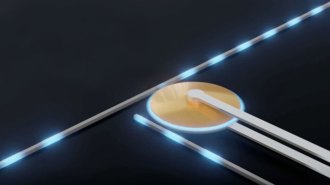 Tech
TechA tiny switch could redirect light between computer chips in mere nanoseconds
Microscopic switches that ferry information using light, not electric current, could help create better, faster electronics.
-
 Climate
ClimateCalifornia landfills are belching high levels of climate-warming methane
Airborne remote sensing spots the Golden State’s biggest emitters of the potent greenhouse gas from the sky.
-
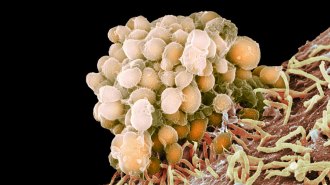 Health & Medicine
Health & MedicineDrug-resistant microbes kill about 35,000 people in the U.S. per year
The latest CDC report on drug-resistant microbes finds that these pathogens infect close to 3 million people in the United States each year.
-
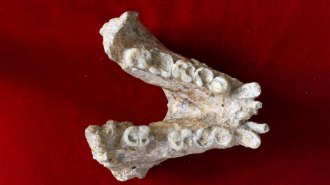 Animals
AnimalsA tooth fossil shows Gigantopithecus’ close ties to modern orangutans
Proteins from the past help clarify how an ancient Asian ape that was larger than a full-grown, modern male gorilla evolved.
By Bruce Bower -
 Space
SpaceNASA gave Ultima Thule a new official name
The distant world briefly visited by New Horizons is now called Arrokoth, a Powhatan word that means “sky.”
-
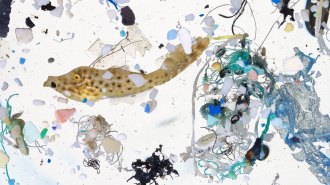 Earth
EarthPlastics outnumber baby fish 7-to-1 in some coastal nurseries
Ocean slicks serve as calm, food-rich nurseries for larval fish. A new study shows that slicks also accumulate plastics, which get eaten by baby fish.
-
 Science & Society
Science & SocietyWhy a warrant to search GEDmatch’s genetic data has sparked privacy concerns
A search warrant issued by a state judge in Florida gives police access to DNA profiles of over a million Americans in a public genealogy database.
-
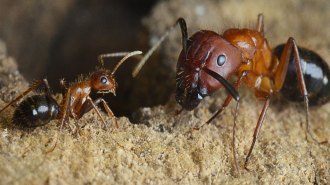 Animals
AnimalsFlipping a molecular switch can turn warrior ants into foragers
Toggling one protein soon after hatching makes Florida carpenter ants turn from fighting to hunting for food.
By Jake Buehler -
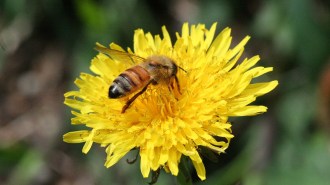 Animals
AnimalsPower lines may mess with honeybees’ behavior and ability to learn
Under power lines, honeybees might suffer neurological effects from exposure to electromagnetic fields.
-
 Animals
AnimalsSilver-backed chevrotains have been ‘rediscovered’ by science after 29 years
With help from Vietnamese villagers, researchers captured photos of a species of deerlike ungulate thought lost to science nearly three decades ago.
-
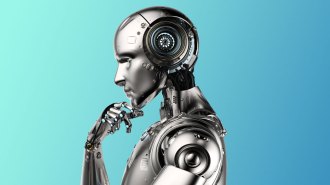 Artificial Intelligence
Artificial IntelligenceA will to survive might take AI to the next level
Neuroscientists argue that the biological principle of homeostasis will lead to improved, “feeling” robots.